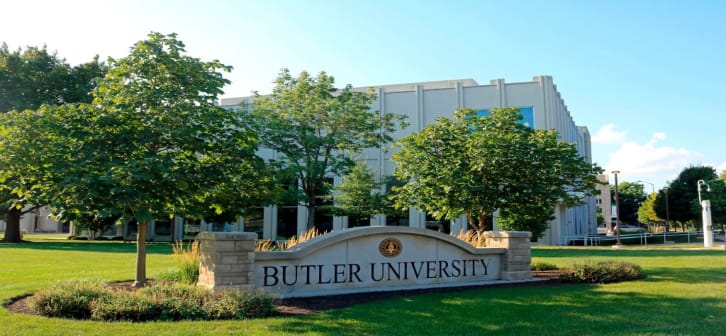To Increase Access, Butler University Creates Free 2-Year Degree Program
Reporter
Editor & Writer
Reporter
Editor & Writer

- Butler University is the third school to partner with the Come to Believe (CTB) Network to provide free two-year college for underserved students.
- The college is accessible to Pell-eligible or undocumented students and will allow them to graduate without debt and without paying out-of-pocket costs.
- Students who complete the associate degree can go on to earn a bachelor's degree from the university for less than $10,000.
- Butler says the CTB model graduates students 4-6 times the national average for two-year colleges.
Butler University in Indiana is creating a free two-year college for historically underserved students that will launch in fall 2025.
Butler on Nov. 3 announced the college on the Midtown Indianapolis campus, where it will offer the opportunity for students to earn an associate degree without debt or out-of-pocket costs. Students can pursue associate degrees in business or allied health.
Students who go through the college have the opportunity to continue on to earn a bachelor's degree from the university for less than $10,000. The college will be accessible to Pell-eligible or undocumented students with high potential facing barriers to higher education
"Butler University was founded in 1855 on the fundamental principle that women and people of color should have equal access to higher education as white men, a radical vision for the era," Butler President James Danko said in the announcement. "Now, almost 150 years on, unequal access to higher education persists among certain segments of our population. It's a significant problem that demands our attention."
Butler is the third university to partner with the Come to Believe (CTB) Network, a nonprofit that develops and launches two-year programs for underserved students to earn two- and four-year degrees. Loyola University Chicago developed Arrupe College in 2015, and the University of St. Thomas in Minnesota created Dougherty Family College in 2017.
Butler said the CTB model graduates students 4-6 times the national average for two-year colleges. More than 80% of CTB graduates transfer to four-year schools, and 75% graduate with a bachelor's degree, according to Butler. Students at the CTB colleges can access the same amenities as four-year students and receive additional support.
"The 'Come to Believe' model is not only innovative in its approach, but it also has proven outcomes, resonating deeply with Butler's original mission," Danko said. "We consider it an honor to be selected for participation in the Come to Believe Network. In collaboration, we are committed to transforming lives."
CTB selected Butler because of the university's commitment to access, capacity, enrollment trends, and the number of lower-income prospective students who could benefit from the new college.
"I commend Butler University for initiating the Come to Believe program on its campus," Dennis E. Bland, president of the Center for Leadership Development, said in the announcement. "Through this effort, Butler has the opportunity to provide a distinctive, enriching, and impactful education experience to traditionally underrepresented students while helping our city bolster postsecondary enrollment, persistence, and completion rates."
Other Efforts to Increase Enrollment For Underserved Populations
Colleges and universities nationwide have increased opportunities for underserved students after the U.S. Supreme Court decision earlier this year to remove race-based affirmative action college admissions.
Some colleges are evaluating legacy admissions' place in higher education. Wesleyan University and Virginia Tech ended the practice this summer. And Massachusetts legislators filed a bill to remove legacy admissions and early decision applications in the commonwealth with consequences for colleges that don't follow guidelines.
Removing legacy admissions could increase socioeconomic diversity, according to a new study by researchers from Harvard University and Brown University. This includes Ivy League schools and highly selective private colleges. Highly selective public colleges also can explore ways to increase applications from lower- and middle-income families.
Breaking Financial Barriers for Underserved Students
An increasing number of colleges and universities are creating tuition-free and completely free education opportunities for students based on their family's income, Native American students, and undocumented students.
Ivy League schools like Princeton University, Harvard University, and Yale University offer free education for students from families making under $100,000.
Like Butler's new college, other colleges, university systems, and states are removing barriers to higher education for undocumented students.
All four-year public New Jersey universities, the University of Washington system, the State University of New York system, the City University of New York system, and statutory colleges at Cornell University and Alfred University all offer tuition-free schooling.
Latest News















